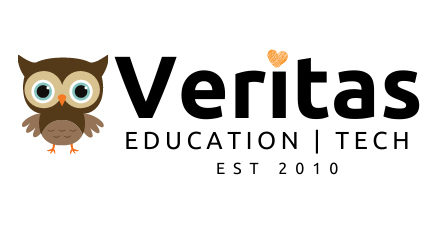欧洲药管局: 支持成年人接种辉瑞疫苗追加剂
文 / 陈慧璋
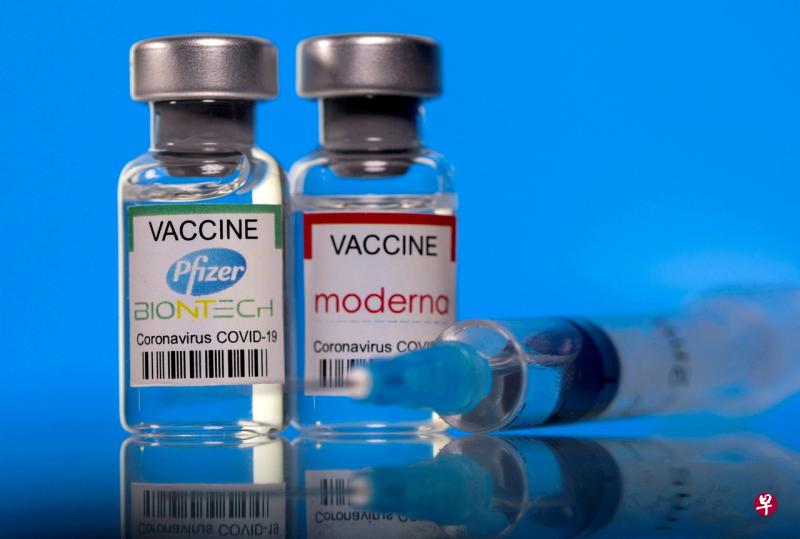
(早报讯)欧洲药品管理局宣布支持18岁及以上群体接种辉瑞-BioNTech冠病疫苗追加剂,同时建议免疫系统受损者在完成两剂疫苗接种至少28天后再接种一剂辉瑞或莫德纳疫苗追加剂。
新华社报道,欧洲药管局周一(4日)发表声明,辉瑞疫苗相关数据显示,在18至55岁的人群中,接种第二剂该疫苗后约六个月再接种追加剂,抗体水平会升高。欧洲药管局因此建议,18岁及以上人群在接种第二剂疫苗至少六个月后,可以考虑接种辉瑞疫苗追加剂。
欧洲药管局还表示,研究发现,接种额外一剂辉瑞或莫德纳疫苗可以提升器官移植者等免疫力严重受损的人产生冠病抗体的能力,因此建议免疫系统严重受损群体在接种第二剂疫苗至少28天后,再接种一剂上述疫苗加强针。
欧洲药管局说,虽然没有直接证据表明这类患者产生的抗体足以抵御冠病病毒,但追加剂至少可以增加对其中一些患者的保护力。欧洲药管局将继续监测所有有关冠病疫苗有效性的最新数据。
欧洲药管局关于追加剂的这一建议只是指导性意见,还需欧盟委员会批准。各成员国关于追加剂的官方建议由各国自行发布,此前一些欧盟国家已经开始推进追加剂接种计划。
Events…
预告一周北美法律公益讲座安排
10/04/2021
时间:周二到周五 晚间
5:30-7:00(西部时间)8:30-9:30(东部 时间)
重播:第二天
上午9:00(西部时间)
中午:12:00(东部时间)
周二: 蒋律师讲遗嘱和需要注意的问题
周三: 数据泄露和个人身份保护&事业机会说明会
周四:北美常见法律问题案例分享(主讲:Joanna,Irene)
周五:律师讲人身伤害如何索赔
Zoom 6045004698
密码:请扫码进群索取
另外:周三6:30(西部时间)美国专场(Michael Wang 主讲)
Zoom 95190929213
密码请扫码进群索取。
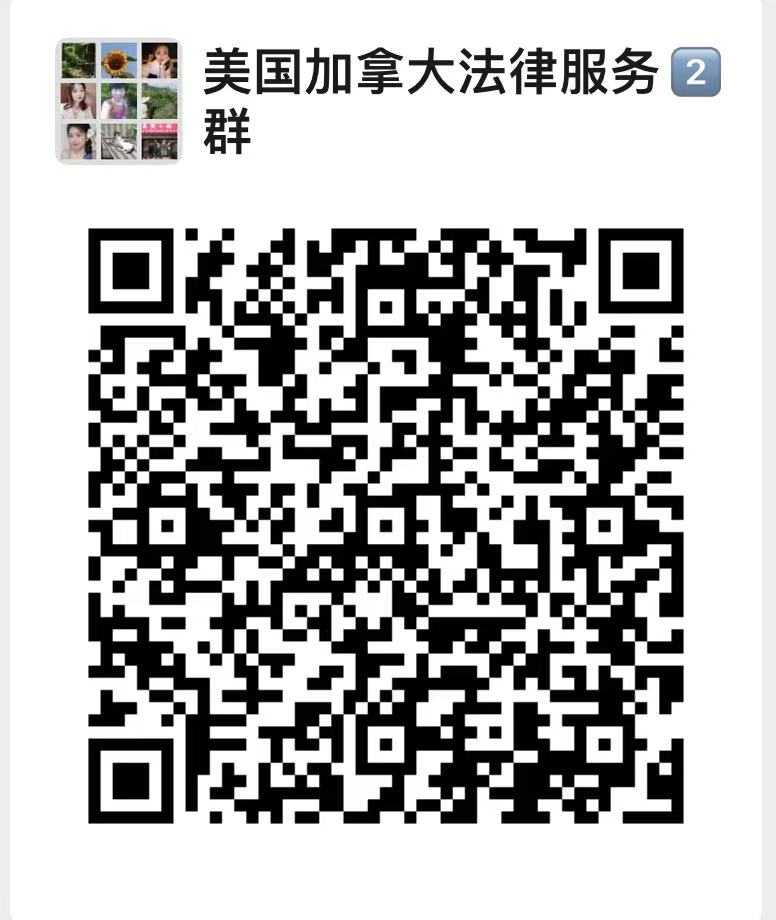
欧洲药管局:强生冠病疫苗或与罕见血栓有关联
文 / 张佳莹
10/01/2021
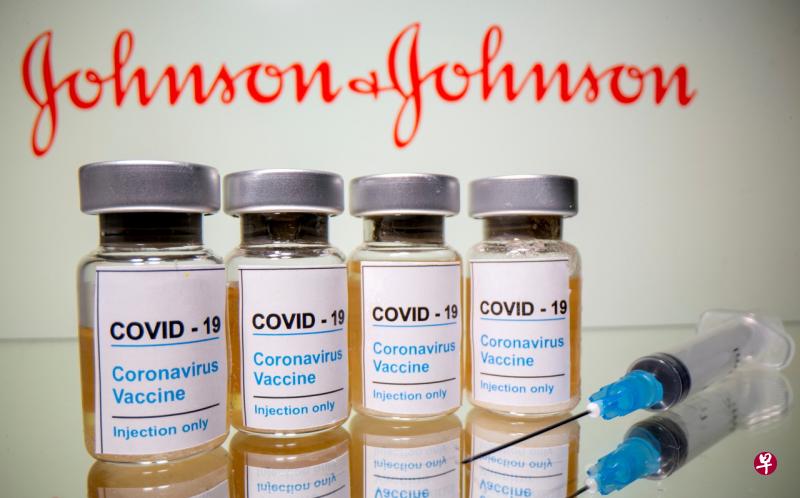
(早报讯)欧洲药品管理局(EMA)周五(1日)说,强生冠病疫苗或与罕见静脉血栓栓塞(Venous Thromboembolism,简称VTE)存在关联,并建议将这种情况列为该疫苗的一种副作用。
欧洲药品管理局还建议将血小板减少征(thrombocytopenia)–一种由身体错误地攻击血小板引起的出血性疾病–作为一种频率未知的不良反应,并添加到强生公司的疫苗产品信息和阿斯利康的疫苗中。
强生公司没有立即回应置评要求。
强生疫苗和阿斯利康疫苗以前都与一种非常罕见的血栓和低血小板计数的组合有关,称为血小板减少综合征(Thrombosis with Thrombocytopenia Syndrome,简称TTS)。
EMA说,将被列入强生公司产品标签的新的、可能危及生命的凝血状况,即静脉血栓栓塞,与血栓和血小板减少综合征是分开的。静脉血栓栓塞通常由腿部、手臂或腹股沟的静脉中形成的血块开始,然后到达肺部并阻断那里的血液供应。
无论是否使用任何疫苗,静脉血栓栓塞最常见的原因是受伤或卧床的病人缺乏运动。避孕药和一些慢性病也被看作是风险因素。
EU finds J&J COVID-19 shot possibly linked to another rare clotting condition
Reuters Staff
10/01/2021
The European Union’s drug regulator on Friday identified a possible link between rare cases of blood clotting in deep veins with Johnson & Johnson’s COVID-19 vaccine and recommended the condition be listed as a side-effect of the shot.
The European Medicines Agency also recommended that immune thrombocytopenia, a bleeding disorder caused by the body mistakenly attacking platelets, be added as an adverse reaction with an unknown frequency to the J&J vaccine product information and to AstraZeneca’s vaccine.
J&J did not immediately respond to a request for comment.
Both vaccines have previously been associated with a very rare combination of blood clotting and low platelet counts known as thrombosis with thrombocytopenia syndrome (TTS).

The two products are based on harmless vector viruses that instruct human cells to make a protein that primes the immune system against future coronavirus infections.
EMA said the new, possibly life-threatening clotting condition known as venous thromboembolism (VTE) to be included on the J&J product label was separate from TTS.
VTE typically begins by a clot forming in a vein of a leg, arm or groin, which then travels to the lungs and blocks the blood supply there.
Regardless of any vaccine use, VTE is most commonly caused by injury or lack of movement in bedridden patients. Birth control pills and a number of chronic conditions are also seen as risk factors.
Moderna’s vaccine is the most effective, but Pfizer and J&J also protect well, CDC-led study says
By Maggie Fox
9/18/2021
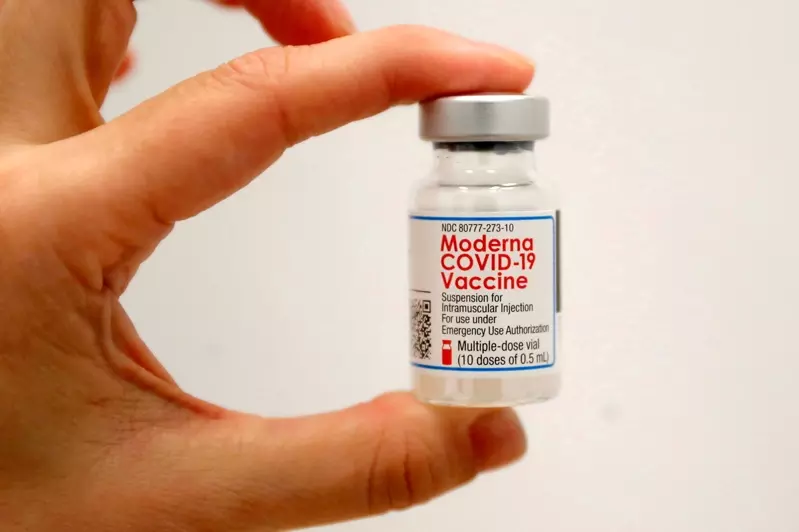
(CNN) A head-to-head study of all three authorized coronavirus vaccines in the United States finds the Moderna vaccine is slightly more effective than Pfizer’s in real-life use in keeping people out of the hospital, and Johnson & Johnson’s Janssen vaccine comes in third, but still provides 71% protection.
Pfizer’s vaccine provided 88% protection against hospitalization, and Moderna’s was 93% effective.
The US Centers for Disease Control and Prevention led a nationwide study of vaccination involving more than 3,600 adults hospitalized for Covid-19 between March and August.
“Among U.S. adults without immunocompromising conditions, vaccine effectiveness against COVID-19 hospitalization during March 11- August 15, 2021, was higher for the Moderna vaccine (93%) than the Pfizer-BioNTech vaccine (88%) and the Janssen vaccine (71%),” the team wrote in the CDC’s weekly report on death and disease, the MMWR.
“Although these real-world data suggest some variation in levels of protection by vaccine, all FDA-approved or authorized COVID-19 vaccines provide substantial protection against COVID-19 hospitalization.”
They found that the biggest difference between the vaccine made by Moderna and Pfizer/BioNtech’s vaccine was driven by a decline that started about four months after people were fully vaccinated with Pfizer’s vaccine.
“Differences in vaccine effectiveness between the Moderna and Pfizer-BioNTech vaccine might be due to higher mRNA content in the Moderna vaccine, differences in timing between doses (3 weeks for Pfizer-BioNTech versus 4 weeks for Moderna), or possible differences between groups that received each vaccine that were not accounted for in the analysis,” the team wrote.
“Vaccine effectiveness for the Pfizer-BioNTech vaccine was 91% at 14 -120 days after receipt of the second vaccine dose but declined significantly to 77% at more than 120 days,” the team wrote.
Pfizer’s and Moderna’s vaccines both use genetic material called messenger RNA to deliver immunity, but they use differing doses and slightly different formulations. The Janssen vaccine uses an inactivated common cold virus called adenovirus — a viral vector — to carry genetic instructions into the body.
“A single dose of the Janssen viral vector vaccine had comparatively lower anti-SARS-CoV-2 antibody response and vaccine effectiveness against COVID-19 hospitalizations,” the team said. “Understanding differences in vaccine effectiveness by vaccine product can guide individual choices and policy recommendations regarding vaccine boosters. All FDA-approved or authorized COVID-19 vaccines provide substantial protection against COVID-19 hospitalization.”
CDC worked with researchers across the country to study 3,689 patients at 21 hospitals in 18 states for the study. They also looked at antibodies in the blood of 100 healthy volunteers after they had been vaccinated with one of the three available vaccines.
“These real-world data suggest that the two-dose Moderna and Pfizer-BioNTech mRNA vaccine regimens provide more protection than does the one-dose Janssen viral vector vaccine regimen. Although the Janssen vaccine had lower observed vaccine effectiveness, one dose of Janssen vaccine still reduced risk for COVID-19-associated hospitalization by 71%,” they wrote.
The study had limitations. “This analysis did not consider children, immunocompromised adults, or vaccine effectiveness against COVID-19 that did not result in hospitalization,” the team wrote. Plus, the volunteers were only followed for 29 weeks — just over six months.
消息:美国可能在10月授权5-11岁儿童接种辉瑞疫苗
文 / 陈慧璋
9/10/2021
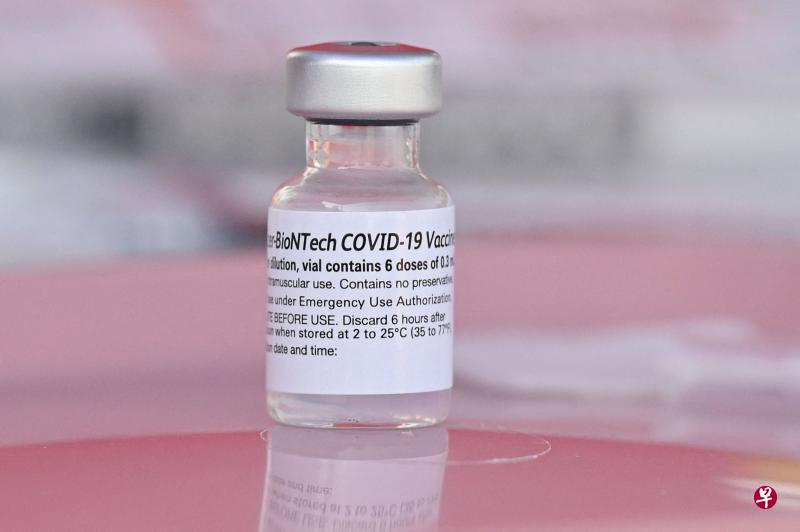
(早报讯)消息人士说,美国高级卫生官员相信,美国5至11岁儿童可在10月底前获准接种辉瑞-BioNTech冠病疫苗。
路透社报道,两名知情者周五(10日)透露,辉瑞制药公司将能在本月底前向美国食品与药物管理局(FDA)提供足够的相关临床试验数据,以申请紧急使用授权。
他们说,食药局预计需要三周时间评估辉瑞疫苗对5至11岁儿童是否安全有效并做出决定。
近几周,美国因德尔塔变种病毒肆虐导致冠病确诊病例大幅攀升,数以百万计的年幼儿童父母,特别是有学龄儿童的父母都殷切希望能为孩子加强防疫保护。
Schools grapple with thousands in isolation or quarantine as delta variant rages
Many schools that planned to forgo virtual and hybrid learning this year, in favor of in-person classes, are revisiting those plans as outbreaks require students to quarantine.
By Daniella Silva
9/05/2021
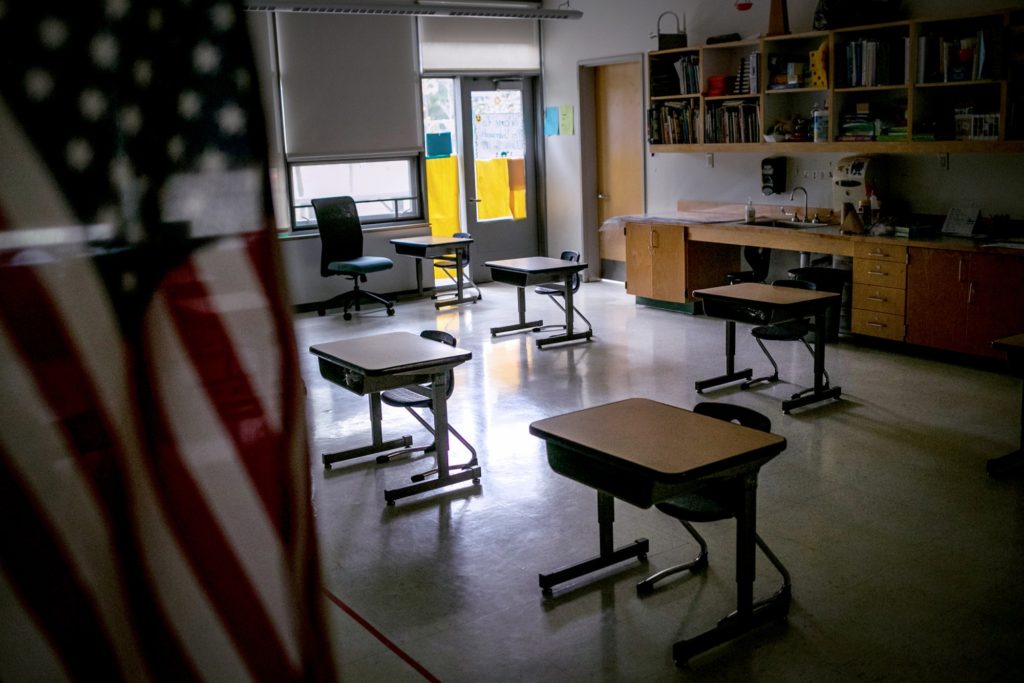
Schools that have opened their doors to students amid the spread of the highly contagious delta variant of the coronavirus already are grappling with how to best continue teaching students when hundreds and sometimes thousands of them are in quarantine.
As cases of Covid-19 started to wane over the spring and the early summer, many schools planned to forgo virtual and hybrid learning this year, in favor of in-person classes. But the lag in vaccination rates and the rapid spread of the delta variant have led districts to revisit those plans, with varying results.
Some schools have sent students home with packets of self-guided work to submit at the end of each day or when on-campus classes resume. Others have temporarily switched to virtual learning. And in some cases, schools have canceled classes altogether while campuses are closed or kids are in quarantine.

In Mississippi, officials last month said more than 20,000 students were in quarantine from exposure to the coronavirus after the first week of school.
The high quarantine numbers among students and staff members led at least 29 schools to “go virtual for a short time in order to interrupt transmission,” the state’s epidemiologist said.
Similarly, the Connally Independent School District in Texas, which opened to students Aug. 18, closed its schools for in-person classes Tuesday after two teachers died last week of Covid. The five schools in the suburban Waco district hastily switched to remote learning and are scheduled to reopen for in-person learning after Labor Day.
“If this pandemic has taught us one thing, it is the ability to change directions quickly,” Connally Elementary School Principal Eric Cantu wrote in a note to parents on the district’s website. “Going from Face to Face learning to remote learning is an example of this.”
More than 300 miles east, however, in Iraan, Texas, learning was put on hold for two weeks when schools closed because of a Covid outbreak in August, about a week into the school year.
Iraan-Sheffield Independent School District Superintendent Tracy Canter said in the letter to the school district’s community Aug. 16 that neither virtual nor remote learning would take place during the closure, but that teachers would be available by email.
She said schools would still meet the minimum 75,600 minutes of instructional time required by law, in part by turning two early-release days into full days of school.
“We know that this is difficult for everyone involved and we thank you for your support and patience during this unprecedented time,” Canter said in the letter.
School districts are confronting the dilemma of how to keep the school year going as the number of parents who want their children to go to in-person school drops.
Only 43 percent of public school parents and guardians said they wanted their children in a classroom full time this year after the Centers for Disease Control and Prevention on July 27 updated its health guidance to recognize the threat of the delta variant.
That was down from 58 percent of parents and guardians who said they wanted in-person instruction before July 27, according to a survey funded by the CDC through the Atlanta-based nonprofit CDC Foundation. It polled 1,448 public school parents and guardians July 23-Aug. 8.
Just more than half of the nation’s largest 100 school districts are planning to make a remote learning option available to all students, according to the University of Washington’s Center on Reinventing Public Education, while 92 will offer some type of remote instruction.
In Florida’s Hillsborough County Public Schools, thousands of students have been quarantined since the start of the school year in August.
Teachers are putting lessons and instructional material online for kids in quarantine and sending out electronic devices or providing physical copies of work based on student need, Jennifer Sparano, the district’s Covid coordinator, said.
She said work is done independently, with check-ins from teachers, but the district is looking into hiring teachers and support staff to be available online during the day to give children live access to a teacher if their own ones are not available because they are teaching in a classroom.
There were more than 7,380 reported Covid cases and nearly 9,270 students and staff in isolation or quarantine, as of Friday, according to a district dashboard. Last Friday, there were more than 5,270 reported Covid cases and nearly 12,000 students and staff in isolation or quarantine, according to the dashboard. The total district population is more than 240,000.
A symptom-free student could still be out of school for five to seven days, under the district’s quarantine procedures, though Sparano said said many students don’t typically miss five full days of school.
In Metro Nashville Public Schools in Tennessee, from Aug. 9 to Aug. 15, there were 95 staff who were isolated or quarantined, with 52 confirmed cases and 980 students were isolated or quarantined, with 207 confirmed cases. From Aug. 16 to Aug. 22, there were 143 staff isolated or quarantined, with 67 confirmed cases and 2,879 students isolated or quarantined, with 395 confirmed cases, according to Sean Braisted, the district’s executive officer of communications and community engagement.
Isolated or quarantined students can access their course information and assignments online and the district offers remote learning assistance to students, he said in an email. Parents must also verify a student participated in all instructional activities, he said.
In the Northeast, where many schools don’t reopen until after Labor Day, school districts are announcing return plans that include planning for continuing education in quarantine.
New York City, which houses the nation’s largest school system and where all public school teachers and staff must get vaccinated, is planning to try to limit the number of students who have to quarantine.
In elementary schools, a classroom will be required to quarantine for 10 calendar days in the event of a positive test in that class and students will continue to receive instruction while they quarantine. But in middle and high schools, students who are at least 12 years old, vaccinated and not showing symptoms will be allowed to continue to attend school in-person. Students who are at least 12 years old, vaccinated and showing symptoms will have to quarantine for 10 calendar days and will have access to remote learning while quarantining. Unvaccinated students will have to quarantine for 10 calendar days, continue learning remotely, and will be allowed to return with a negative result after the seventh day.
The city’s strategy is designed to avoid the disruption of major school closures, which would be necessary only in case of widespread transmission in the school, the New York City Department of Education said in a health and safety guide.
“Our commitment to parents is to minimize disruption this year, keep as much continuity as possible and make sure all those health and safety measures are in place,” New York City Mayor Bill de Blasio said.




